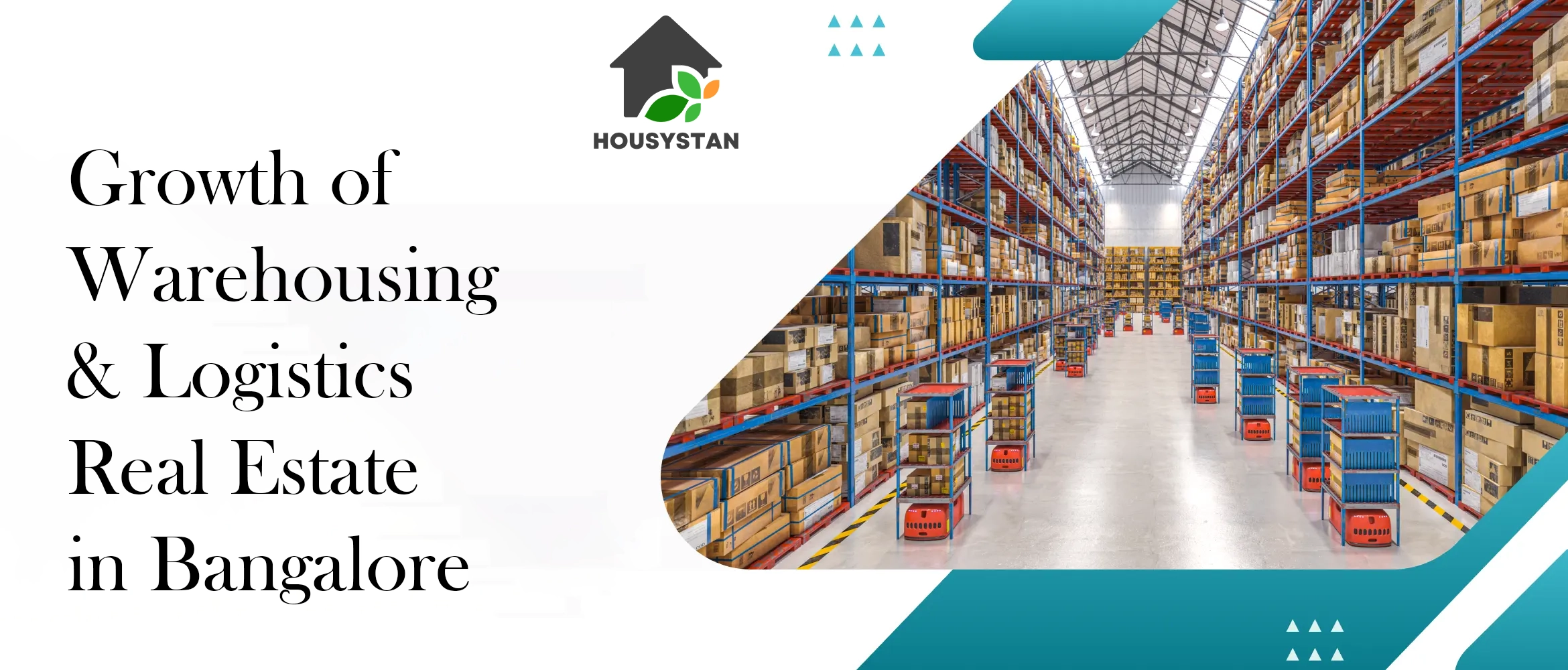Growth of Warehousing and Logistics Real Estate in Bangalore
Read latest blogs and articles from Housystan

The Information mentioned here was last updated on:
29/1/2026Understanding the Booming Growth of Warehousing and Logistics Real Estate in Bangalore
Bangalore, commonly referred to as the Silicon Valley of India, is not just a technological hub; it is rapidly becoming a key player in the warehousing and logistics real estate market. This booming growth can be attributed to several factors that are reshaping the city’s economic landscape. From infrastructure development to the rise of e-commerce, learn what is driving this trend in Bangalore and how it is transforming the city’s logistics and warehousing industry.
1. The Rise of E-commerce Driving Warehousing Demand
- Verified Tenants/Buyers
- Unlimited Property Listing
- Zero subscription/charges fee
- E-commerce Expansion: Bangalore has witnessed a significant increase in e-commerce, which is one of the main drivers of warehousing growth. The demand for faster delivery times has led to the need for strategically located warehouses within and around the city.
- Local Market Demand: With a population that increasingly favors online shopping, the need for local warehousing solutions has surged. Companies are establishing fulfillment centers closer to consumers, ensuring prompt delivery and improved customer satisfaction.
2. Strategic Location and Infrastructure Growth
- Connectivity: Bangalore’s strategic location in south India makes it an ideal logistics hub. The city is well-connected by road, rail, and air, which facilitates efficient transportation and distribution networks.
- Infrastructure Development: The government’s focus on enhancing infrastructure has played a crucial role in supporting the logistics sector. The development of roads, highways, and the upcoming Bangalore Suburban Railway project are expected to further boost the city’s connectivity.
3. Government Initiatives and Policies
- Ease of Doing Business: Policies promoting ease of doing business have attracted investments in warehousing and logistics. The Karnataka government’s initiatives to streamline processes and provide clear guidelines have encouraged companies to establish their operations in Bangalore.
- Incentives and Support: Various incentives such as tax benefits and subsidies have been introduced to encourage the growth of logistics and warehousing facilities. These measures have made Bangalore an attractive destination for businesses looking to expand their logistics operations.
4. Technological Advancements and Smart Warehousing
- Automation in Warehousing: As technology continues to evolve, warehousing operations in Bangalore are becoming increasingly automated. Companies are investing in smart warehouse solutions that include robotics, automated storage and retrieval systems (ASRS), and IoT applications.
- Data-Driven Logistics: The adoption of data analytics and machine learning is helping companies optimize their supply chain operations. Real-time data allows businesses to manage inventory more efficiently and reduces operational costs.
5. Real Estate Trends Shaping the Industry
- Rising Real Estate Investments: The surge in demand for warehouse and logistics space has led to increased real estate investments in Bangalore. Developers are focusing on building state-of-the-art facilities that offer operational efficiency and sustainability.
- High Demand Areas: The growth corridors in and around Bangalore, such as Tumkur Road, Hosur Road, and Narsapura, are witnessing significant activity in terms of warehousing developments. These areas provide the advantage of proximity to major industrial belts and urban centers.
6. Sustainable Warehousing Practices
- Green Building Initiatives: Sustainability is becoming a major focus in the logistics sector. Warehouses in Bangalore are increasingly adopting green building technologies to minimize environmental impact. This includes energy-efficient lighting, rainwater harvesting, and solar power integration.
- Waste Management: Effective waste management practices are being integrated into warehouse operations. This not only ensures compliance with environmental regulations but also optimizes resource utilization.
7. Challenges and Opportunities in the Sector
- Land Acquisition and Costs: One of the primary challenges facing the logistics real estate sector is the high cost of land acquisition in Bangalore. However, leasing options and joint ventures with local developers offer viable alternatives.
- Skilled Workforce Demand: With the advent of advanced warehousing technologies, there is a growing demand for a technically skilled workforce. Training programs and educational courses are emerging to fill this gap, creating job opportunities in the sector.
8. Future Prospects
- Continued Growth: The warehousing and logistics industry in Bangalore is poised for continued growth. As technology evolves and consumer demand for faster deliveries increases, the sector is expected to expand further.
- Focus on Innovation: Companies that prioritize innovation and adaptability will lead the charge in shaping the future of this booming industry. By embracing new technologies and sustainable practices, they can maintain a competitive edge in the market.